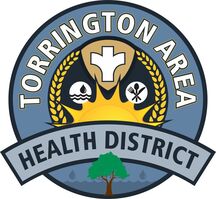Connecticut Immunization Program
Immunizations
From home page menu, choose Programs & Services, Community Health, Immunization, there are then 3 choices. Will you please link the choices to the following (you can get rid of the whole page that you currently arrive at when clicking Immunization Program. It has old NIIW info and instead link to the page below):
Immunization Program click to HomePage (ct.gov)
CT Vaccine Program click to CT Vaccine Providers (CVP)
Access my Vaccine Records/ CT Immunization Information System click to CT WiZ Public Portal
Also from home page menu, scroll down to box that says Community Health and click, then click Immunization. On the page it brings you to, please get rid of all the old info on NIIW. There should only be three choices (same as above).
Immunization Program which goes to HomePage (ct.gov)
Ct Immunization Program that goes to CT Vaccine Providers (CVP)
Access my Vaccine records/ CT Immunization Information System CT WiZ Public Portal
COVID 19
Under the COVID 19 Choices can you add two choices:
ACCESS MY COVID VACCINE RECORD which can link to CT WiZ Public Portal
I LOST MY COVID VACCINE CARD, (This can link to a page that looks like this):
The mission of the Immunization Program is to prevent disease, disability and death from vaccine-preventable diseases in infants, children, adolescents and adults through surveillance, case investigation and control, monitoring of immunization levels, provision of vaccine, and professional and public education.
Infants and Children (0-6 years old)
https://www.cdc.gov/vaccines/schedules/easy-to-read/child-easyread.html
Preteens and Teens (7-18 years old)
https://www.cdc.gov/vaccines/schedules/easy-to-read/adolescent-easyread.html
Adults (19+ years old)
https://www.cdc.gov/vaccines/schedules/hcp/imz/adult.html
Pregnant Women
https://www.cdc.gov/vaccines/pregnancy/pregnant-women/index.html
To learn more about Connecticut Immunization Program
(https://portal.ct.gov/DPH/Immunizations/CONNECTICUT-IMMUNIZATION--PROGRAM)


